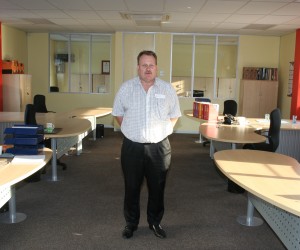Department of Higher Education and Training (DHET) Minister, Naledi Pandor, at a recent meeting with captains of industry, has emphasised the importance of the department’s training initiative to boost youth employment in South Africa. Referred to as the Centres of Specialisation (COS), the programme aims to secure partnerships between the industry and 26 Technical and Vocational Education and Training (TVET) colleges, countrywide, for the training of top artisans in 13 priority trade sectors.
One of these sectors is welding and the Southern African Institute of Welding (SAIW), the leading welding training organisation in Africa, has been awarded the contract from the DHET to act as the ‘Quality Custodian’ of the process in the welding industry.
Moreover, SAIW’s Etienne Nell has been appointed the industry’s Occupational Team Convener for the implementation of the Quality Council for Trades and Occupations (QCTO) Artisan Welder Curriculum (NOCC – A21 which is aimed at producing: a skilled and capable workforce to support economic growth; an increased availability of intermediate skills and an increased delivery of properly qualified artisan welders, at the Centres of Specialisation.
“The Minister is fully committed to the QCTO programme, which ultimately puts pay to the failed ‘Learnership’ idea. This is an excellent thing for the welding industry and all other trades in South Africa,” Nell says.
One of Nell’s first tasks was to find the two welding TVET partners and, after visiting several colleges, the Boland College in Worcester and the East Midlands College in Uitenhage were selected. These colleges will run the QCTO’s ‘dual’ training system, which combines technical education and practical training with authentic work experience in a fabricator’s workshop.
Meanwhile the National Skills Fund has set aside R150 million to support the partner colleges across all the sectors to ensure they are up-to-date and ready for training. For the welding industry, it will be Nell’s responsibility to help the two chosen colleges to procure the equipment, train the trainers and generally ensure that their infrastructures are in the appropriate condition for training.
SAIW executive director, Sean Blake, says that Minister Pandor’s support of this programme is wonderful news for the welding industry. “The Minister has said that national associations have a key role to play in modernising TVET colleges’ system for the production of intermediate-level skills and the SAIW is certainly ready to rise to the challenge,” he says.
He adds that bringing together of all the right players, including the various industries, government and business, in a cohesive programme will do wonders in helping to improve the skills situation in this country. “This is long overdue and the SAIW commits to doing all it can to make the initiative a success,” he concluded.






